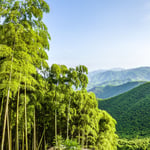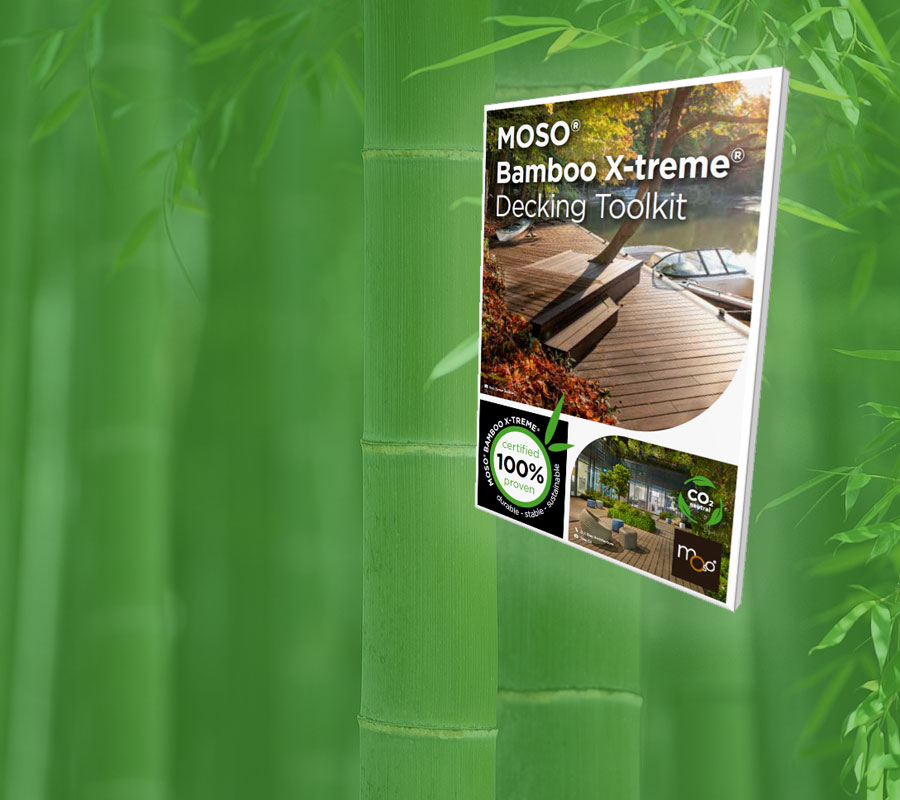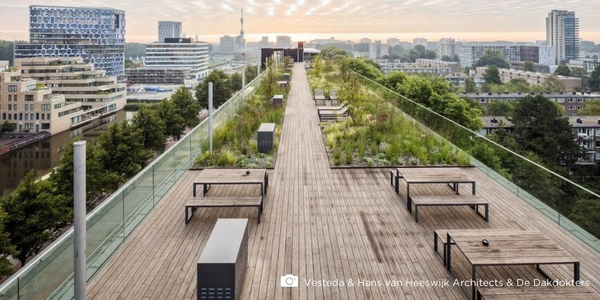Common knowledge to all, most giant bamboo species grow and are widely available in China. So how can a product that needs to be processed and then shipped to the MOSO® warehouse in the Netherlands possibly be sustainable? How does this resemble greenwashing?
How is bamboo sustainable?
Bamboo, as a resource, is one of the fastest growing plants in the world, with rapid renewability and a beautiful natural cycle in which harvesting bamboo stems improves the mother plant. Bamboo is quite truly an incredible plant. Not only this, but bamboo stores an immense amount of CO2 in the fibres itself, which is ultimately stored in the end product. These extremely fast growing speeds, of up to 1 metres a day, make bamboo a beautiful alternative to scarce tropical hardwoods and so-called green composites. But does this alone suffice?
No, bamboo must also be sustainably produced
In order to have a sustainable product, you must also have sustainable production processes which ensure that a responsible and sustainable production is being upheld. There are many aspects of production in which a less sustainable product could be put onto the market. However, the 21 MOSO China employees ensure that the MOSO® production lines and processes are strictly followed. By doing so they are more sustainable, but it is also one of the reasons that MOSO® Bamboo Products are more expensive than other bamboo alternatives. These high standards and strict guidelines are not the same throughout the bamboo industry and cannot be fully guaranteed. Which is what makes MOSO® Bamboo X-treme® Decking stand out, accompanied by a 25 year guarantee, sustainable production can be assured. Read more about how MOSO® Bamboo X-treme® is made here.
How is bamboo decking production sustainable?
Since the launch in 2010, MOSO® Bamboo X-treme® Decking production has been optimised and altered by MOSO® substantially. After many years of improvement, MOSO® managed to diversify and constantly evolve to create the outstanding product known today. By doing so, the production methods simultaneously evolved with the product itself. Working smarter and more effectively led to adjustments and investments in a more sustainable way of operating. Ultimately, sustainability is also more financially attractive when this is implemented well. Thus MOSO®'s production partner invested in new, more sustainable production processes, such as utilising the bamboo waste that is a natural by-product of any bamboo product production. Bamboo waste is collected in the MOSO® Bamboo X-treme® factory and used to create bamboo pellets, which are then used to generate energy. As well as this, the factory roof is filled with solar panels to generate more energy for the factory. These green alternatives generate more than half of the energy on a yearly basis, and as efficiency increases, as does the percentage of green energy generated. Read this blog for a more detailed explanation of the sustainable production steps.
Is bamboo the most sustainable decking material?
MOSO® has invested in multiple certifications through extensive testing to ensure there are no empty claims and to support sustainable production. These certifications and the transparency of materials used contribute to LEED and BREEAM credits with the use of MOSO® Bamboo X-treme® Decking in your project. Not only this, but the carbon storage within the bamboo material is another reason to invest in a natural bamboo deck. By locking carbon in a product, a sustainable choice has been made, no deforestation takes place and, more importantly, the beautiful natural deck is a true eye catcher for any project. Read more about bamboo vs composite decking here.
What is the most sustainable element of bamboo decking?
There are many sustainable elements of bamboo decking that make it a sustainable alternative, but the element that we love the most about bamboo, in general, is its growing speed and ability to absorb large amounts of carbon dioxide from the atmosphere. With a density of 1150 kg / m³, MOSO® Bamboo X-treme® is very dense and, thus, has a high bamboo content, meaning it also stores a lot of carbon throughout its lifetime. All the CO2 that was taken from the atmosphere during the growth phase is stored in the product for the rest of its life, and thus, in your projects. In fact, our MOSO® Bamboo experts can calculate exactly how much carbon is stored in your project. This carbon storage is why we believe in bamboo and believe in the increased incorporation of bio based materials, like bamboo, in the building industry.




.jpg?quality=high&width=900&height=450&name=Bamboo%20forest%20resource%20blog%20header%20(2).jpg)







